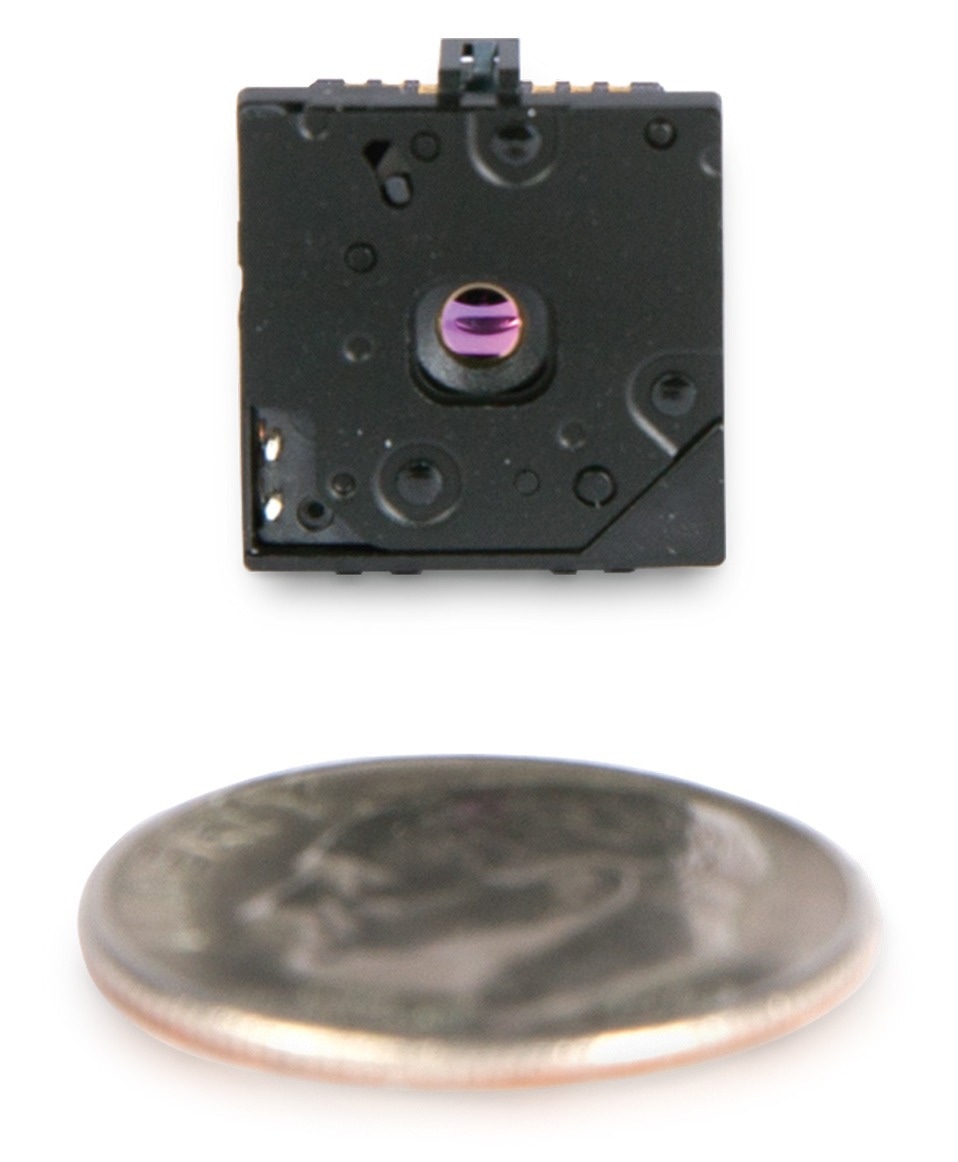Teledyne FLIR, part of Teledyne Technologies Incorporated, today announced the release of its much-anticipated Lepton 3.1R, the world’s first radiometric thermal camera module with a 95-degree field of view (FOV), 160 x 120 resolution, and a scene dynamic range of up to 400 degrees Celsius. The 3.1R model maintains the same compact and low-power form factor that made the Lepton family of thermal camera modules the best-selling in the world for mobile, small electronics, and uncrewed systems.

Image Credit: Teledyne FLIR
“The revolutionary Lepton was the world’s first thermal micro camera module integrated into millions of devices from ruggedized smartphones to drones,” said Mike Walters, vice president, product management, Teledyne FLIR. “Lepton 3.1R can now propel advancements in cost-saving and lifesaving unattended products ranging from early fire monitoring of critical machinery, electrical switchgear, and data centers to IoT products for smart factory, occupancy monitoring, smart homes, smart appliances, and even elderly care applications.”
The Lepton 3.1R is a drop-in enhancement for existing Lepton-based products. It incorporates the same visual object and space perception interface (VoSPI), inter-integrated circuit (I2C), and electrical and mechanical form and fit as predecessor Leptons to simplify development. Furthermore, Lepton continues to be the lowest-cost focal plane array (FPA) based thermal sensor on the market.
Enhanced Thermal Radiometric Performance
All Lepton modules include unmatched thermal sensitivity of <50 mK for an uncooled micro thermal camera. Lepton features many proprietary technologies, including wafer-level detector packaging, wafer-scale micro-optics, a custom application-specific integrated circuit (ASIC), and a low-cost, easy-to-integrate camera package. The Lepton family also includes integrated digital thermal image processing and radiometry, the ability to provide the temperature of every pixel in the scene.
More Resources for Integrators and Developers
To help reduce development costs and shorten time to market, users can take advantage of an online Lepton integration toolbox with application notes and source code for testing on Windows, Linux, Raspberry Pi, and BeagleBone. The Teledyne FLIR Technical Services team is available to support customers licensing MyFLIR® application software and image-enhancing multispectral dynamic imaging (MSX®) and Vivid-IR™, helping customers reduce technical risk and maximize performance.